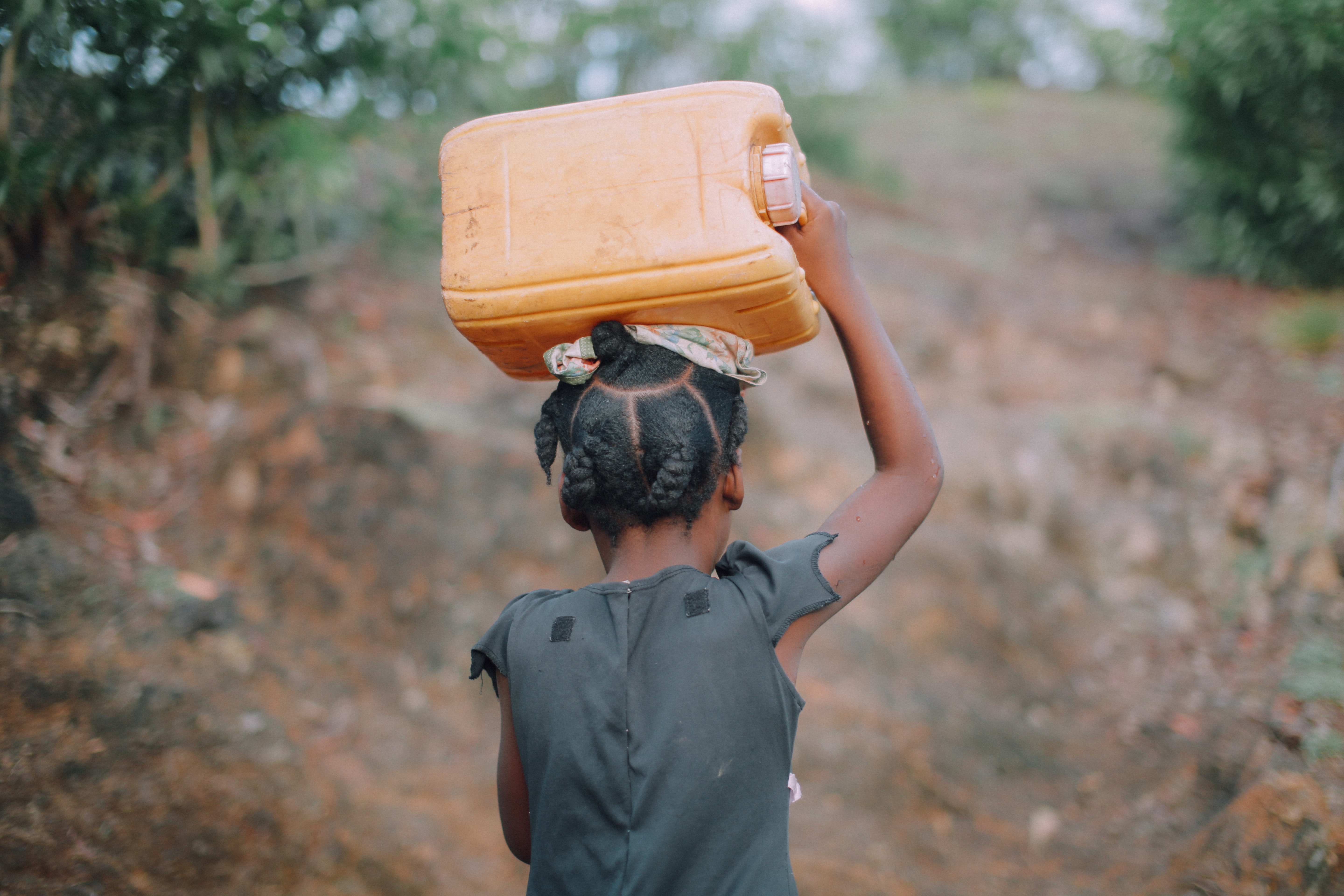Executive Summary
This case study supports and illustrates the theoretic factsheet "Sales process" with practical insights.
From retail to direct sales – or why the right salesforce matters
In 2010 the Cambodian social enterprise Hydrologic started to sell its Tunsai filter (see screenshot below) through retail channels reaching customers through more than 800 shops. However, sales were limited as retailers didn’t actively promote and explain the benefits of the filter to potential customers. In order to increase sales, Hydrologic developed a new sales strategy and started piloting a direct sales model in 2011 with the support of Whitten & Roy Partnership (WRP) a sales consulting company.
Recently, iDE and WRP have presented their analysis and experience in designing a dedicated sales pitch, which is fully tuned to BoP costumers. Some of the best sales practices, are presented in the webinar from USAID and OnFrontiers:
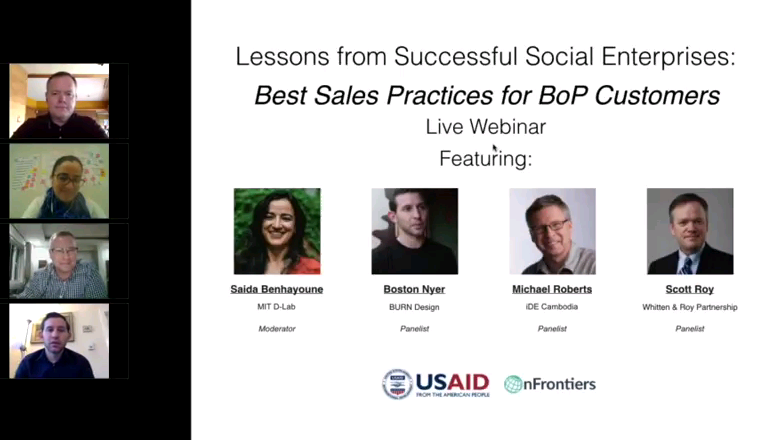
Together whit WRP a human-centred sales approach (a set of tools and techniques adapted from professional sales practices, see also HCD) applied to “last-mile” customers in Cambodia was developed. The new sales model defined the workflow for sales people, clearly structured sales trainings (using a problem-led approach to reach people with safe water, identifying problems and suggesting solutions to it) and basic territory management. The positive results of the piloting phase led Hydrologic’s shift from its retail channel sales to a proactive Business-to-Consumer (B2C) direct sales approach, hiring professional direct sales people. Accordingly initial training on the new strategy implementation was delivered by WRP. The strategy was subsequently adopted by Hydrologic. Despite challenges in the right execution, a rapid expansion of the sales force occurred (from 4 sales staff in one province during the pilot phase in 2012 to over 60 staff spread across 14 provinces by mid-2014). This development unfortunately resulted in a disappointing sales growth. To take measures Hydrologic re-engaged with WRP in the second half of 2014 to revisit the sales strategy. Additionally, full-time, in-field consultants worked till 2016 to transform the sales team and develop the right model and supporting systems to achieve set results.
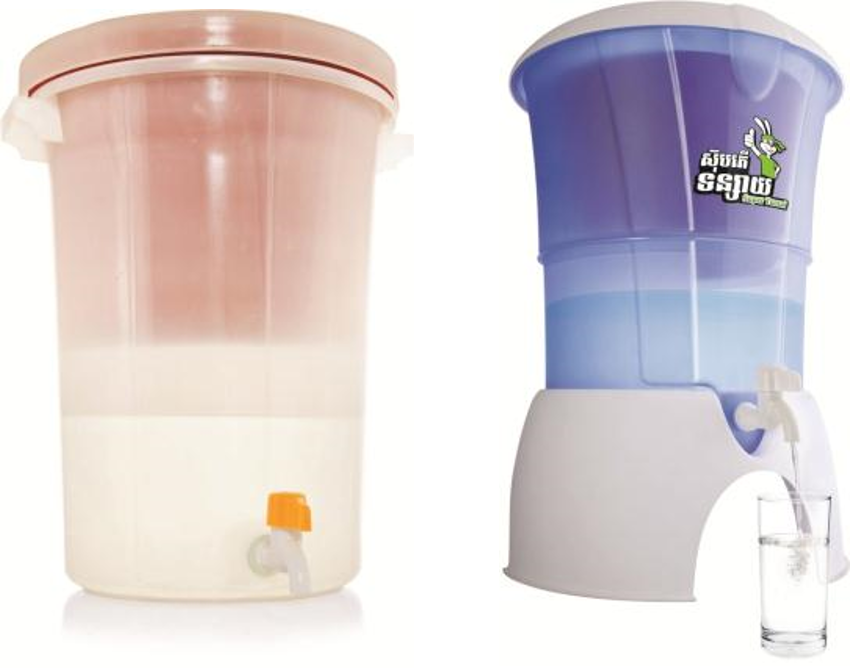
Hydrologic, 2016
This new engagement led to a reduction in the number of field sales teams and staff and looks by today as the following: Professionally trained sales agents (called Clean Water Experts (CWE)) coordinate with the chief of the target village to set up a group sales meeting one or two days beforehand. In a typical meeting, 15 to 40 people will attend. Hereby the presenters emphasize on the importance of safe water and present the Tunsai and Super Tunsai filters. To complete the sales speech the convenience and cost-saving aspects of using a water filter compared with boiling are highlighted. The CWEs are trained in ethical sales methods to help customers weigh the cost of action versus inaction and decide if a water filter will pay off for them over time. These factors are important to customers’ rational mind, but closing the deal requires an emotional trigger, which is most often provided by the prestige associated with owning the beautiful Super Tunsai product.
If money is an obstacle (and it usually is) a micro-loan is offered to allow families to pay back the cost over time (see factsheet on microfinance). Additionally CWEs also sell filters door-to-door in the village, meeting with one or two families at a time. A provincial sales team (see photos below) consisting of four CWEs can visit every village in a province over a period of about one year, at which point they repeat the cycle. Sales rates during subsequent passes in a village are often better than the first time because more people are familiar with the product, being inspired by their neighbours’ successful use.
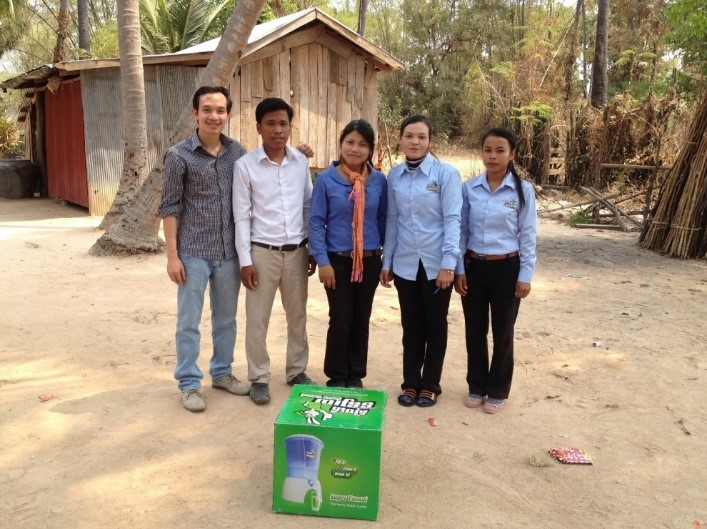
How do the CWEs incorporate their sales skills?
The CWEs are trained in ethical sales methods specifically designed as Hydrologic’s sales process and adapted to the Cambodian context. All newly hired field sales agents and managers have to go through thorough training sessions to incorporate specifically for Hydrologic developed sales speech. To support these education workshops, training manuals, a workbook and supporting training videos have been created. Additionally are senior manager investing time and resources in developing talent and educate future leaders. This is an ongoing process of evolvement that requires long-term commitment, investment and learning from mistakes.
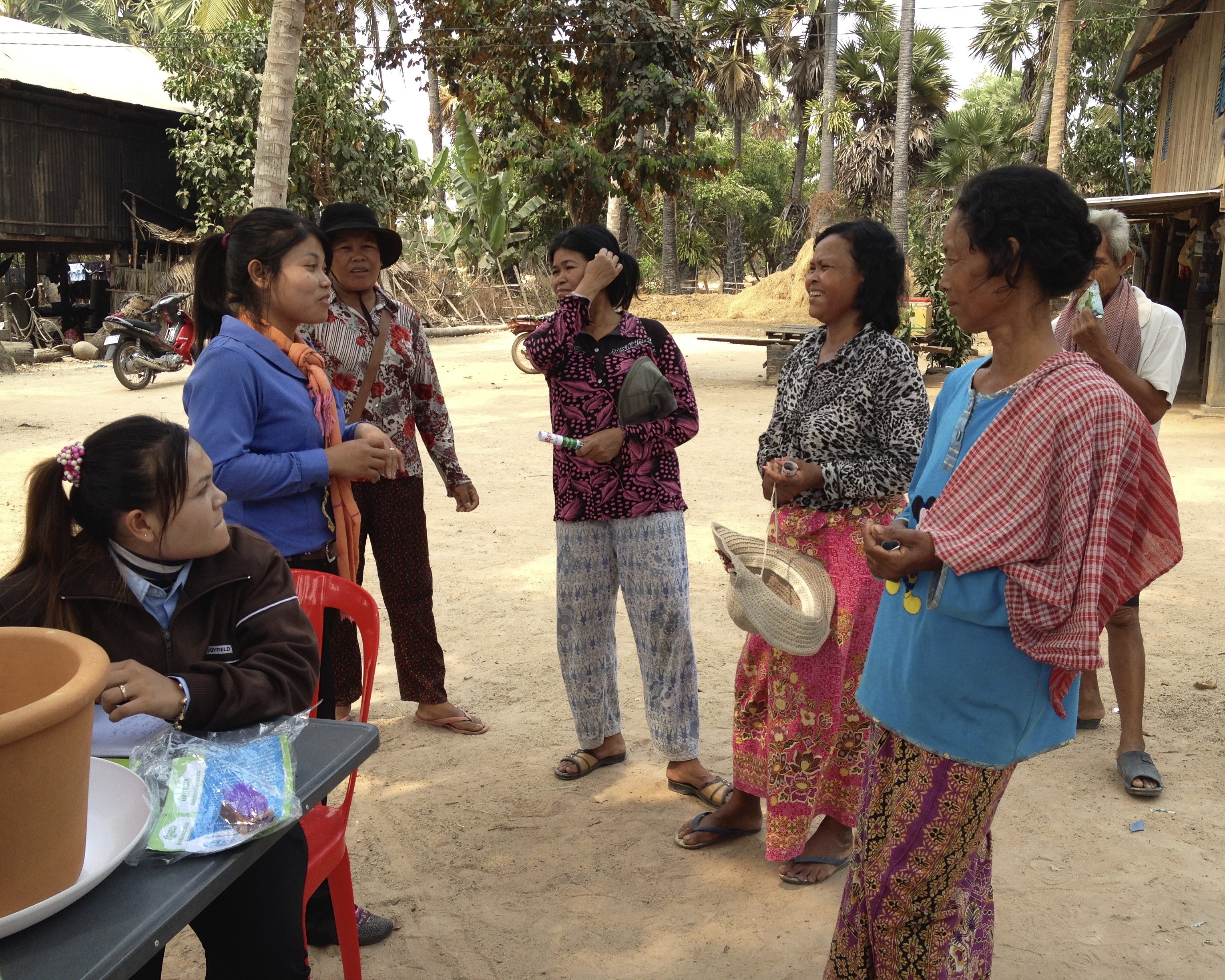
Lessons learnt and recommendations from Hydrologic for successful sales replication
Attract and hire the right people
The most critical factor in being able to transform the sales team was hiring the right people for key management positions. For these positions (in both sales and support functions), Hydrologic recruited high calibre individuals with a positive attitude, passion for supporting the development of people, a willingness to embrace change, speak openly, address challenges head-on and foster an open and collaborative working culture. It has been absolutely instrumental to bring in key people with these qualities to build a positive sales culture and execute the evolving sales strategy.
To attract and keep high-performing sales agents with Hydrologic an attractive compensation scheme is in place that includes:
- A base salary equal to approximately 1.25x the national minimum wage for garment factory workers
- Travel (fuel) and phone allowances
- Commissions that can reach up to 5x the base salary for top performers
Context based tools
- The sales culture Hydrologic was looking to build was in conflict with cultural norms and attitudes. A real turning point for sales staff came when Hydrologic’s key sales management staff began to include Khmer stories in its sales tools, training material and messages, and relate concepts to traditional belief systems.
- Achieving a basic understanding of concepts and frameworks in the sales and sales management had been a challenge and this development helped to bridge the gap between a “western” approach and traditional Cambodian culture.
High quality training materials to professionalize sales
- Selling is a hard job, since sales agents need to keep a positive attitude in the face of frequent rejection. Hydrologic focused on developing high quality training materials for sales people that will ensure all sales staff have access to consistent and correct training, reduce the need for in-person training sessions and empower sales managers to develop their teams. Sales agents are trained on methods and solutions for the establishment of a sound direct sales network, which are able to identify problems early, generate more sales, and monitor progress.
- The CWE must be involved in the marketing planning process as well, and they must feel comfortable with the strategy, methods that they are going to use and the product they are selling. It is also important to include ideas and experiences from the ground in the strategy and adapt it accordingly in the sales speech.
Boon and bane of NGO sales
Bulk sales (in the current case to NGOs) cost less compared to individual sales and increase production scale and profitability also. Although NGO sales are irregular and hard to plan, NGOs can subsidise the filters they sell and accordingly supply them to those people who could otherwise not afford them, which is very precious in reaching everybody with safe water. However, giveaways will undermine market creation, product appreciation and hamper future sales. Research has shown that if end-users are receiving a free filter they are less likely using it properly and are neither asking for support if they face problems – leaving the filter often unused aside when problems occur. In the end each entrepreneur has to decide whether to stop NGO sales to have afterwards a freely distributed product in the market or not. Clever would be to apply the concept of smart subsidies in order to avoid this dilemma (see factsheet on smart subsidies).
Hydrologic: Infiltrating the Market – Evolution of a Social Enterprise
Hydrologic has produced an extended case study documenting its 14 year evolution from a donor-funded NGO project to a sustainable social enterprise.
HYDROLOGIC (2015): Hydrologic: Infiltrating the Market – Evolution of a Social Enterprise. URL [Accessed: 31.05.2018]Going to Scale with Safe Water: Analyzing the Business Model of Hydrologic Social Enterprise in Cambodia
The thesis focuses on various aspects of Hydrologic’s innovative business model and the different elements and difficulties in relation to Cambodia’s water sector. The author identifies strategies to scale up the company in another country and provides helpful, praxis-oriented insights into the development, the needs, the challenges and potentials of the company in the scaling process.
KOHLER, S. (2016): Going to Scale with Safe Water: Analyzing the Business Model of Hydrologic Social Enterprise in Cambodia. St.Gallen: University of St.Gallen URL [Accessed: 18.04.2018] PDF

